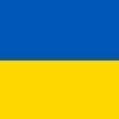What The West Needs To Learn About Democracy From Thailand
-
Recently Browsing 0 members
- No registered users viewing this page.
-
Topics
-
-
Popular Contributors
-
-
Latest posts...
-
99
Older Retirees and Younger Partners in Rural Thailand: Accepted or Not?
Bullsh*t. The only place it would likely be an issue in the US would be with white man black woman in black neighborhood. And even then, if a white man showed up at a black church with a black woman, they would be welcome. Where are you from? -
718
What did you have for breakfast?
St. Dalfours maybe. I always have 4 different ones available, and would have more if local stores carried them. They have over 20...........https://www.stdalfour.com/all-products. -
8
Report Thai-US Tariff Deal Hits Snag as Vietnam Charges Forward in Talks
This is probably the most sensible idea while the orange moron is in power. -
99
Older Retirees and Younger Partners in Rural Thailand: Accepted or Not?
Think you might be right.....for 19 years I think she has been conning me....555 -
0
Foreigners Flaunting Wealth in Thailand: How Is It Viewed?
Some of the financially successful foreigners living in Thailand display their wealth by buying luxury condos or building large houses, driving expensive cars, wearing flashy designer clothing, and openly spending big in restaurants and nightlife spots. These displays of affluence can particularly stand out in rural or less economically developed areas of the country, where local incomes are quite a lot lower and there isn't much of a local middle class. I wonder how local Thai communities perceive foreigners who make their money seen in Thailand. Are they admired for their success and spending, or do they spark jealousy and resentment among locals? -
4
USA Trump 'Madman Theory' How Unpredictability Is Shaping Global Power Dynamics
Gosh. It almost makes you wish the Dems had put up a qualified candidate. 2024 was theirs to lose. And boy, did they ever. Gonna be a rough 3+ years for some... But not for America, with the economy zipping along and the borders secure.
-
-
Popular in The Pub












Recommended Posts
Create an account or sign in to comment
You need to be a member in order to leave a comment
Create an account
Sign up for a new account in our community. It's easy!
Register a new accountSign in
Already have an account? Sign in here.
Sign In Now